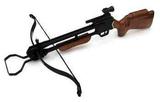Guardian 23rd October 2008
The government today blamed inaccurate police record keeping for a 22% rise in the number of the most serious violent crimes in England and Wales.
The claim is likely to provoke a row over the true picture of violent crime and the robustness of the statistics.
Police forces recorded 5,500 serious violent crimes between April and June this year, compared with 4,512 over the same period last year.
The crimes include murder, manslaughter, infanticide, attempted murder and grievous bodily harm (GBH) with intent.
The biggest increase was in the number of cases of GBH with intent, which rose from 4,038 to 5,073 - an increase of 26% .
Today, the Home Office today released a statement saying the steep rise was partly due to a minority of police forces wrongly recording GBH with intent in categories of other violent crime.
The home secretary, Jacqui Smith, said the rise was due to new guidance on the classification and recording of the most serious violent offences being issued.
"This change means that this quarter's figures are not comparable with last year's," she said.
"However, for most types of violence where the guidance hasn't changed, like homicide, robbery and death by driving, the numbers are down since last year.
"The overall number of violent crimes is down too - by 7% - almost 18,000 fewer violent crimes."
Smith blamed the sharp rise in the number of GBH with intent cases on confusion over what the offence covered.
She said some police forces had not classified it as a serious violent crime if someone was attacked with a broken bottle but not seriously injured.
Officials said 13 forces were asked to re-examine their figures after they discovered that some serious assaults were being recorded in a lower category of offence.
The Home Office estimated that "at least two thirds of the 26% increase in GBH with intent … can be accounted for" by the offence being wrongly recorded before new guidance clarifying what it covered was issued in February .
The department admitted the undercounting could have been going on for more than 10 years.
Chief Constable Keith Bristow, of Warwickshire police, said accurate recording of crime was essential to help officers respond effectively and boost public confidence.
"The impact of changes made to the way in which some crime is recorded will make uncomfortable reading," Bristow, the Association of Chief Police Officers' spokesman on violence and public protection, said.
"Apparent increases in some categories of violent crime are strongly influenced by these counting amendments which were introduced by the Home Office in April 2008."
The figures also showed a 10% drop in the number of murders from 202 in April to June 2007 to 182 in April to June this year.
There was an ever sharper decline in the number of deaths caused by dangerous driving, including drink driving, which fell by 30% from 116 to 81.






















No comments:
Post a Comment